Gold
Africa finds itself at the crossroads of a significant transformation in the global gold trade. The relocation of Russian gold trading to Hong Kong, strategic alliances such as Mali and Russia's gold refinery agreement, and the surge in gold prices are reshaping the continent's role in this crucial industry.
Geopolitical Dynamics
The trend of Russian gold trading relocating to Hong Kong can be attributed to several geopolitical factors, most notably stringent US sanctions and a crackdown in the United Arab Emirates (UAE). According to insights shared by Robert Besseling, CEO of Pangea-risk, the shift has been particularly noticeable since April, with a discernible decline in gold volumes passing through the UAE, a traditional hub for minerals, including gold.
Besseling explained that the decline is a consequence of the UAE's concerted efforts to enhance its commodity trading center and align with Financial Action Task Force directives. This shift has led to an increase in gold volumes directed towards Hong Kong, raising questions about the overall stability and attractiveness of Africa as a hub for gold trade. The implications of this shift are profound, presenting both challenges and opportunities for African nations deeply intertwined with the gold trade.
Simultaneously, the surge in the price of gold beyond the $2,000 mark, the first time since May, has added a new layer of complexity to the gold trade landscape.
The rise in gold prices, fueled by weakening of the US dollar and geopolitical uncertainty, has led to investors turning to gold as a widely considered safe-haven asset. Moreover, expectations that the Federal Reserve will not raise interest rates further, with markets pricing in a potential interest rate cut as early as March, have contributed to the increased demand for gold and intertwines with the ongoing shifts in the gold trade dynamics.
Regulatory Frameworks and Local Dynamics
The regulatory impact on gold trading in African countries has become a focal point of discussion. According to Besseling, African nations are now prioritizing compliance with international sanctions. The decline in Russian gold entering the UAE is viewed as a positive development in this regard, potentially enhancing regulatory frameworks for gold trading in African countries.
Besseling emphasizes that, with African nations looking to strengthen their regulatory mechanisms, transparency becomes a key element in their quest for reliable trading partners. The emphasis is on seeking transparent counterparties, avoiding violations of international sanctions, and building robust local regulatory frameworks. This renewed focus on compliance and transparency is seen as a positive step towards fortifying the integrity of gold trading in the region.
Beyond regulatory considerations, Tibor Nagy, Former US Assistant Secretary of State, adds valuable insights into the recent Mali-Russia agreement to build a gold refinery. This agreement signifies a growing partnership and raises questions about the potential benefits and risks associated with increased collaboration between African nations and global players in the gold trade.
Nagy underscores that the agreement aligns with Africa's broader interest in local beneficiation and processing within the gold mining industry. The move towards refining gold locally is seen as a step towards stimulating economic growth, creating jobs, and fostering economic diversification. While the agreement is still in its nascent phase, it reflects a broader trend across the continent where African nations seek greater beneficiation for their local economies in the gold trade.
Chinese-Russian Partnership and Gold Trading Routes
The trend of Russian gold trading through Hong Kong introduces the dimension of the Chinese-Russian partnership. Nagy provides insightful perspectives into this partnership, noting that it is fueled by China's willingness to support Russia in ways that do not appear to violate international sanctions. This strategic alliance, as explained by Nagy, adds a layer of complexity to the evolving dynamics of the gold trade.
From the African perspective, the destination of gold trading may be less critical than ensuring that the trading benefits local communities and economies. The intricate relationship between Russia and China, as explained by Nagy, introduces an additional element to the geopolitical landscape that African nations must navigate. The collaborative efforts between these global players have the potential to shape not only gold trading routes but also the broader dynamics of economic partnerships.
Navigating uncertainties
As geopolitical shifts, strategic alliances, and local dynamics reshape the global gold trade, stakeholders must focus on transparency, compliance, and sustainable economic development. Adapting to these changes is crucial for the continued resilience and growth of the gold trade industry, both in Africa and on a global scale.



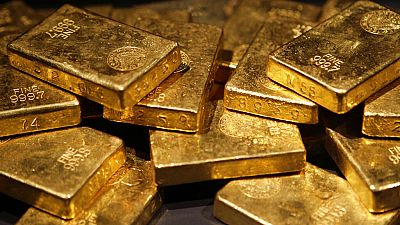

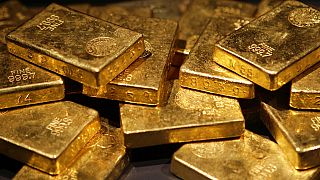
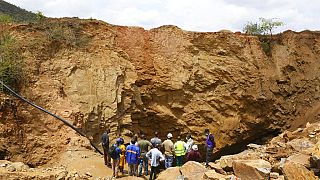
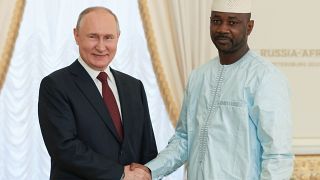



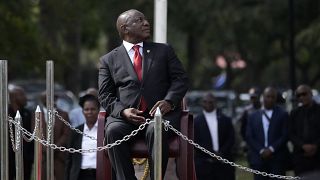


Go to video
British police charge two men after Channel migrant deaths
Go to video
Namibia: Tourists pose naked at Big Daddy Dune in Namib Desert, Govt expresses anger
01:02
Pics of the day: April 25, 2024
01:09
Tanzania: Death toll from flooding rises to 155 as heavy rains continue in Eastern Africa
Go to video
Kenyan government recommends regulating, not banning TikTok
Go to video
Over 100 inmates break free from a Nigerian prison after heavy rains